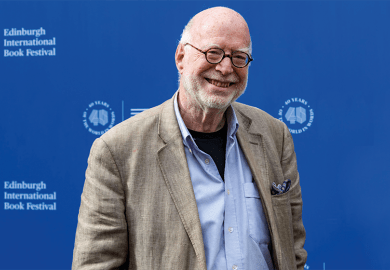One of the strangest products of American philanthropy in recent years is Seattle's The Experience Music Project. This kind-of-a-museum, housed in one of Frank Gehry's less acclaimed buildings and funded by a sliver of Microsoft co-founder Paul Allen's vast wealth, is "dedicated to the exploration of creativity and innovation in popular music". It has struggled to make ends meet.
Who needs a pop museum when TV, magazines and the web churn over pop's history every week, every day?
EMP may sound like a white elephant but this book suggests otherwise. Listen Again collects 19 papers given at EMP's annual pop music conference by journalists, writers and academics. Like its excellent predecessor This is Pop (2004), it is testimony to the immense richness of American popular music history - and to the formidable analytical resources available in the US to illuminate that history.
The book has its unacknowledged limitations. The focus is almost entirely on the Americas and a majority of chapters home in on the musical era beloved of baby boomers - the quarter-century that ended in 1980. But it would be harsh to accuse the book of cultural imperialism or sentimental nationalism. For Eric Weisbard's authors provide compelling and pleasurable evidence to support one of the chief conclusions of pop sociology: music is culturally promiscuous.
The concept underlying the compilation of papers is that pop history is best understood not as a series of movements - blues, punk, hip-hop - but as moments: "dramatic instances where music was transformed in ways we are still grappling with". Whether or not this is a coherent idea, it brings together some fascinating material. Take The Kingsmen's 1963 hit Louie, Louie, the subject of hundreds of cover versions. Ned Sublette traces the song's origins in Cuban cha-cha-cha and shows the pervasive influence of Cuban music on American song, an influence obscured by Cold War enmities.
Similarly, Michaelangelo Matos provides a compelling account of how Apache, best known in the UK in the 1960 version by Cliff Richard's backing band, The Shadows, became hip-hop's national anthem, and the basis of dozens of rap tracks, a process in which a composition "by a white Englishman imitating Native Americans as portrayed by white Americans and made famous by a Dane with a vaguely Hawaiian sound, newly arranged by a Canadian, and rhythmically defined by a Bahaman" by the mid-1970s became the biggest record in black New York.
Listen Again revels in such secret histories of cultural border crossing. Anyone who thinks of minstrel shows in terms of the banal racism of an old BBC television series will be enlightened by W.T. Lhamon, who analyses the insubordinate speak-singing of the great black vaudeville performer Bert Williams.
Other more familiar sounds are retrieved from the dustbin of history. Holly-George Warren points out not only the sinister gothic edge in Bobbie Gentry's 1967 hit Ode to Billie Joe, but also its innovative fusion of black blues and white country and western. Franklin Bruno traces the origins of Leiber and Stoller's Is That All There Is? in a Thomas Mann short story. But the contributors to the book do not allow their pleasure in such connections to obscure the inequality and suffering that so often generates culturally powerful music.
Time and again, I found myself putting down the book to download a song or to search YouTube for a dimly recalled performer evocatively discussed here. But this isn't a book of pop trivia, a scholarly version of TV nostalgia shows. Anyone who wants to revisit the pop past will find enjoyment in Listen Again, but learning and scholarship too.
Listen Again: A Momentary History of Pop Music
Edited by Eric Weisbard
Duke University Press
336pp
£48.00 and £12.99
ISBN 9780822340225 and 40416
Published 25 January 2008
Register to continue
Why register?
- Registration is free and only takes a moment
- Once registered, you can read 3 articles a month
- Sign up for our newsletter
Subscribe
Or subscribe for unlimited access to:
- Unlimited access to news, views, insights & reviews
- Digital editions
- Digital access to THE’s university and college rankings analysis
Already registered or a current subscriber? Login



